
Emmylou Harris started as a folkie – born in Alabama, she dropped out of college to perform folk songs in Greenwich Village. She recorded an unsuccessful debut album, 1969’s Gliding Bird, and as a divorced solo mother she dropped out of the folk scene. She was spotted performing by Chris Hillman, and he recommended her as a harmony singer to Gram Parsons. Harris was an integral part of Parsons’ two solo records, her voice shining on material like the duo’s gentle reading of ‘Love Hurts’.
As Parsons’ protege and backing vocalist, Emmylou Harris continued pursuing his vision of Cosmic American Music after his untimely death. Harris assumes the mantle with gracefulness and composure. Harris recruited The Hot Band; key members James Burton and Glenn D Hardin had played with Parsons and Elvis Presley. Parsons, the nudie suit-clad, anti-establishment country outlaw, is almost the antithesis of Emmylou Harris as the respectable queen of country music.
Harris’ clear soprano is also far removed from Parson’s laid-back intonation. Even without her solo career she’d be celebrated as one of popular music’s best harmony singers, duetting with Bob Dylan, Neil Young, and Bright Eyes. Harris is primarily a song interpreter, and she’s cast her net wide for material, covering material from Bruce Springsteen and The Beatles alongside traditional and contemporary country material.
Emmylou Harris has released twenty-one studio albums, as well as collaborative efforts with Rodney Crowell, Mark Knopfler, and as a part of a trio with Dolly Parton and Linda Ronstadt. With a large, consistent discography, it may well be worth picking up a compilation rather than the individual records, good as generally they are. Harris’ country career can be divided into three main eras:
– 1975-1983: country-rock crossover, with Brian Ahern producing
– 1985-1993: a more traditional country sound
– 1995 – present: embracing more contemporary production
Emmylou Harris Album Reviews
Gliding Bird | Pieces Of The Sky | Elite Hotel | Luxury Liner | Quarter Moon in a Ten Cent Town | Blue Kentucky Girl | Light of the Stable | Roses in the Snow | Evangeline | Cimarron | Last Date (live) | White Shoes | The Ballad of Sally Rose | Thirteen | Angel Band | Bluebird | Brand New Dance | At The Ryman | Cowgirl’s Prayer | Wrecking Ball | Red Dirt Girl | Stumble Into Grace
Gliding Bird
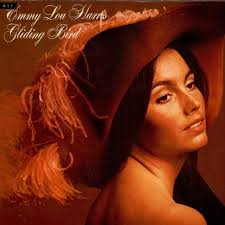
1969, not reviewed
It’s easy to forget that Harris released a folk album before she met Parsons and switched to country. It features five Harris originals as well as covers of Dylan and Hank Williams. Harris has disowned the record, although ‘Clocks’ later appeared on her 2007 box-set.
Pieces of the Sky
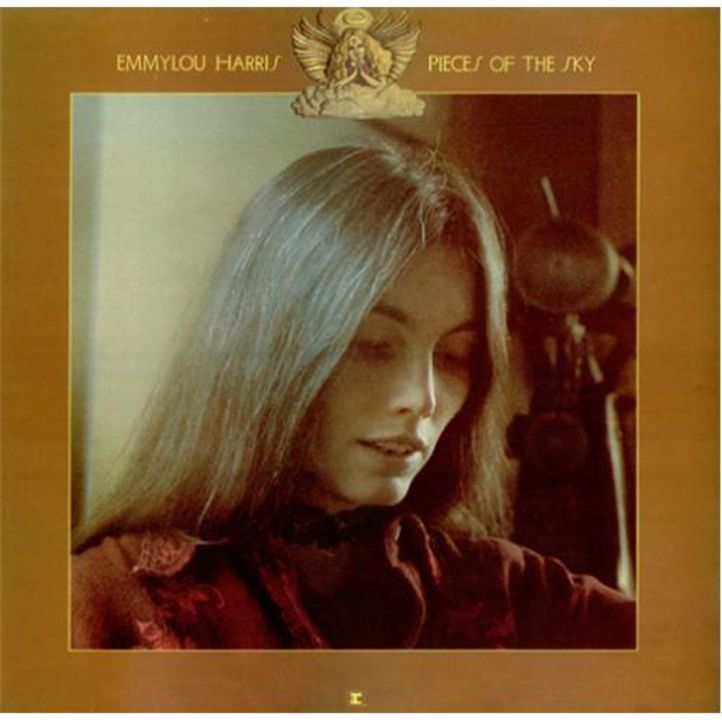
1975, 8/10
Warner Brothers agreed to release a Harris record as long as she could find a hot band. Harris recruited guitarist James Burton and pianist Glen D. Hardin, who had both played with Elvis and Gram Parsons, christening them the Hot Band. Producer Brian Ahern would helm every Harris album through to 1983’s White Shoes, and was also married to her during the same period. Pieces of the Sky demonstrates an eclectic taste in material that dismayed some country purists – as well as country artists like Merle Haggard and the Louvin Brothers, Harris includes a lovely cover of The Beatles’ ‘For No One’.
Harris is best known as a song interpreter, but the standout track on Pieces of the Sky is an original, written with Starland Vocal Band’s Bill Danoff. ‘Boulder To Birmingham’ is a tribute to Parsons, with a gorgeous verse melody (“the last time I felt like this/It was in the wilderness and the canyon was on fire”) and a gospel-tinged chorus. ‘For No One’ isn’t markedly changed, even if it’s an unusual choice for a country record, but it’s delivered in a stately and emotive reading. Harris’ voice sounds best on mellow material like ‘Before Believing’ and ‘Sleepless Nights’, but upbeat songs like ‘Bluebird Wine’ and ‘Queen of the Silver Dollar’ provide a welcome change of pace.
Pieces of the Sky is an accomplished career reboot for Harris, and she never released a better song than ‘Boulder to Birmingham’.
Elite Hotel

1975, 8/10
On the back of the accomplished Pieces of the Sky, follow-up Elite Hotel was massively successful. It topped the country charts and spawned two number one country singles, covers of Buck Owens’ ‘Together Again’ and Patsy Cline’s ‘Sweet Dreams’. Significantly, Harris is also dipping into Gram Parsons’ back-catalogue, with covers of ‘Ooh Las Vegas’, ‘Sin City’, and ‘Wheels’. There’s nothing as transcendently great as ‘Boulder To Birmingham’, but Elite Hotel is a consistently strong set.
The excellent opening pair showcases Harris’ diversity; she excels both on upbeat material like ‘Amarillo’ and the delicate ‘Together Again’. There’s another beautiful Beatles’ cover with ‘Here, There, and Everywhere’ and a gentle and affecting duet with Rodney Crowell on ‘Satan’s Jewel Crown’. The best moment though is Harris’ sensitive reading of The Flying Burrito Brothers’ ‘Sin City’.
Elite Hotel is an excellent sequel to Pieces of the Sky, cementing Harris’ reputation as a talented interpreter.
Luxury Liner
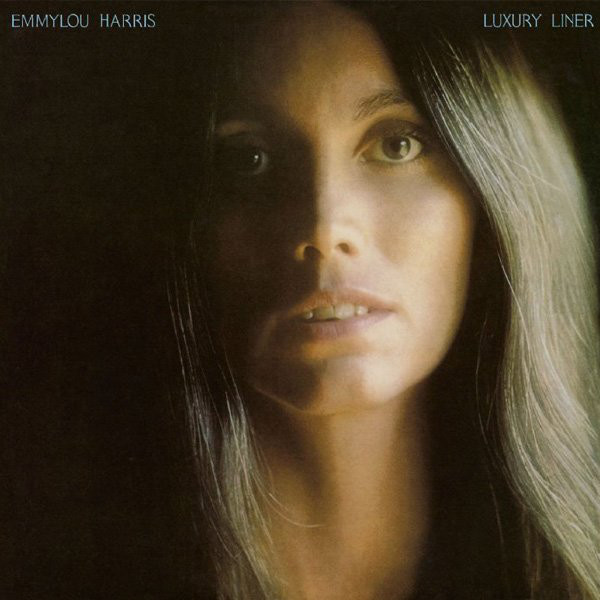
1976, 8.5/10
Luxury Liner is essentially the last entry in a trilogy with Pieces of the Sky and Elite Hotel – Harris’ first three country records, with an eclectic selection of material. All three are among her best records, but Luxury Liner is the most consistent – in particular, she excels at upbeat material here, with the title track and ‘(You Can Never Tell) C’est la Vie’.
There’s no Beatles cover this time, but an upbeat country reading of Chuck Berry’s ‘(You Can Never Tell) C’est la Vie’ is among Harris’ most daring reinventions. There are two more ace Gram Parsons’ covers – the title track, salvaged from Parsons’ pre-Byrds outfit, the International Submarine Band, is a great opener. More significant, however, is the first cover of Townes Van Zandt’s ‘Pancho & Lefty’. Nicolette Larson duets on ‘Hello Stranger’, and there’s typical pretty balladry on ‘I’ll Be Your San Antone Rose’ and the Louvin Brothers’ ‘When I Stop Dreaming’.
Luxury Liner is an excellent culmination to the first phase of Harris’ country career.
Quarter Moon in a Ten Cent Town
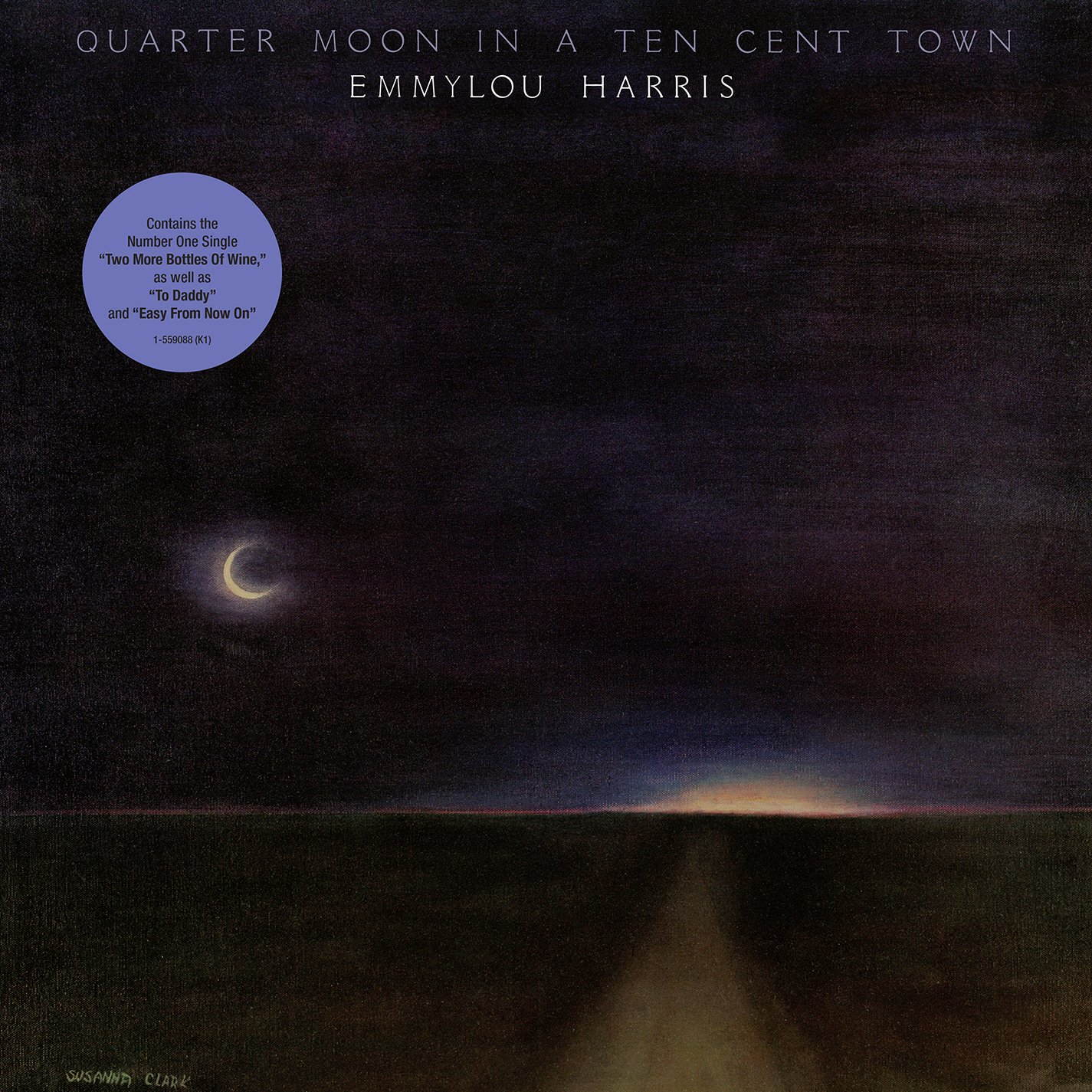
1978, 8/10
Quarter Moon in a Ten Cent Town continues the polished country-rock sound of Harris’ previous discs. The material, however, is all drawn from contemporary country writers; ‘To Daddy’ was an outtake from Dolly Parton’s 1976 album All I Can Do, while ‘Easy From Now On’ was written by Carlene Carter and Susanna Clark. Susanna Clark was the wife of Guy Clark, and also painted the album cover. Despite the less familiar material, Quarter Moon in a Ten Cent Town continues the excellence of Harris’ previous releases, particularly on the very strong first side.
‘Leaving Louisiana in the Broad Daylight’ was written by Rodney Crowell and was later a hit for the Oak Ridge Boys; Harris’ version is notable for the rasp in her usually pristine vocals. Harris squeezes every bit of emotion out of the gorgeous ‘Easy From Now On’ and ‘To Daddy’, and the two Jesse Winchester compositions, ‘My Songbird’ and ‘Defying Gravity’ are also beautiful. Willie Nelson duets on ‘One Paper Kid’, giving some interest to a slightly weaker second side.
Quarter Moon in a Ten Cent Town shows Harris prospering without her usual sources of material – Gram Parsons, old country chestnuts, and pop music are all absent here.
Blue Kentucky Girl
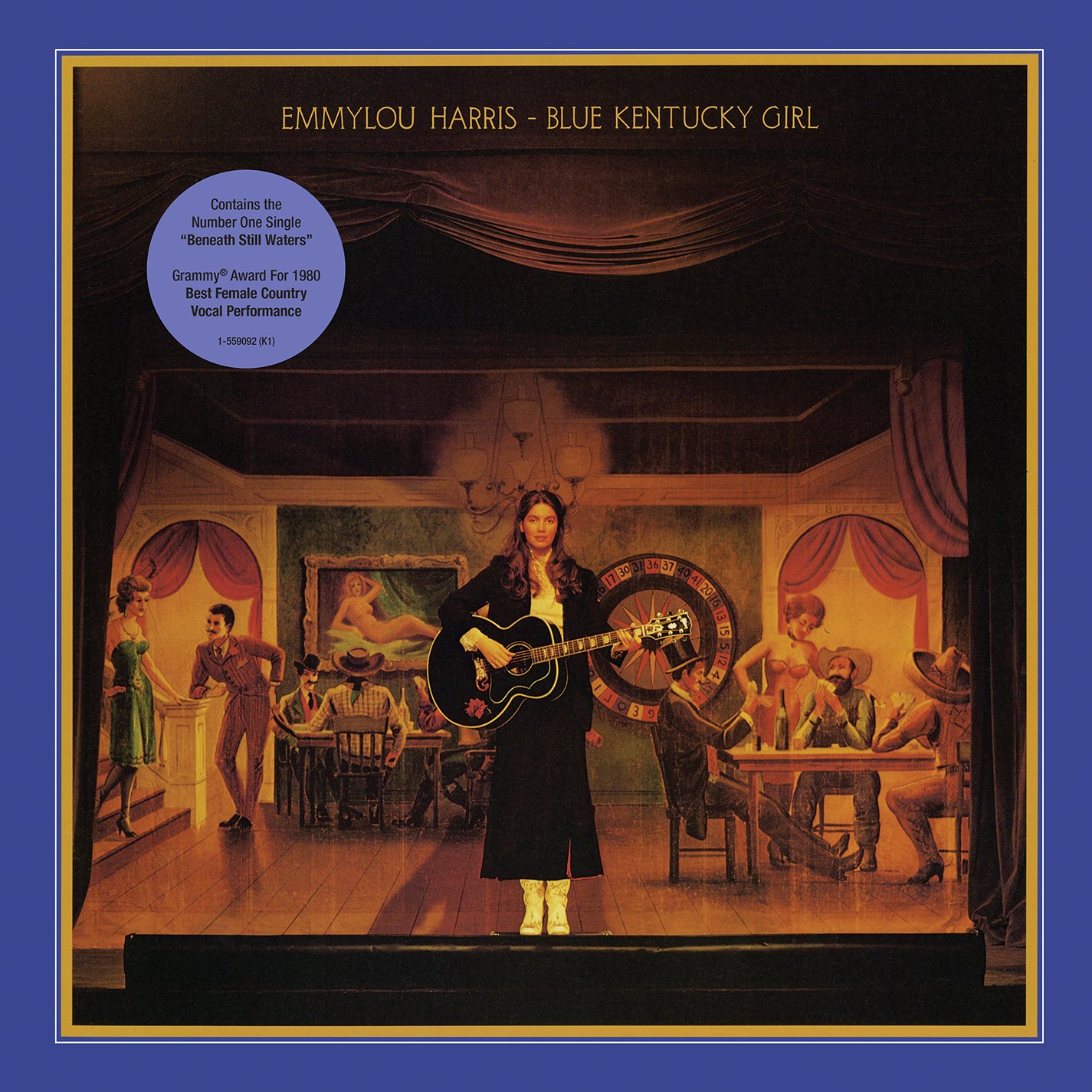
1979, 6/10
Harris dove into a traditional country sound for Blue Kentucky Girl. It features the same musicians as previous efforts, but it presents Harris at her least inventive. Blue Kentucky Girl is classy as always, but your reaction to it may depend on your tolerance for sentimental material like The Drifters’ ‘Save The Last Dance For Me’ and Loretta Lynn’s ‘Blue Kentucky Girl’.
Even the customary visit to Gram Parsons’ catalogue isn’t particularly satisfying – her version of ‘Hickory Wind’ is smooth and heartfelt, but doesn’t add much to Parsons’ earlier versions. Along with ‘Hickory Wind’, the other mellow stuff is the least corny. The cover of Dallas Frazier’s ‘Beneath Still Waters’ was Harris’ fourth #1 country hit, and it’s gorgeous, while ‘Sorrow in the Wind’ is also lovely.
Harris made a more successful foray into traditional country with her next record; Blue Kentucky Girl presents an uninteresting bunch of sentimental crowd-pleasers.
Light of the Stable

1979, not rated
Like most Christmas music, Harris’ Christmas record is polarising. Harris records traditional carols like ‘The First Noel’, ‘Away in a Manger’, and ‘Silent Night’, along with some contemporary compositions. Neil Young incongruously guests on backing vocals.
Roses in the Snow
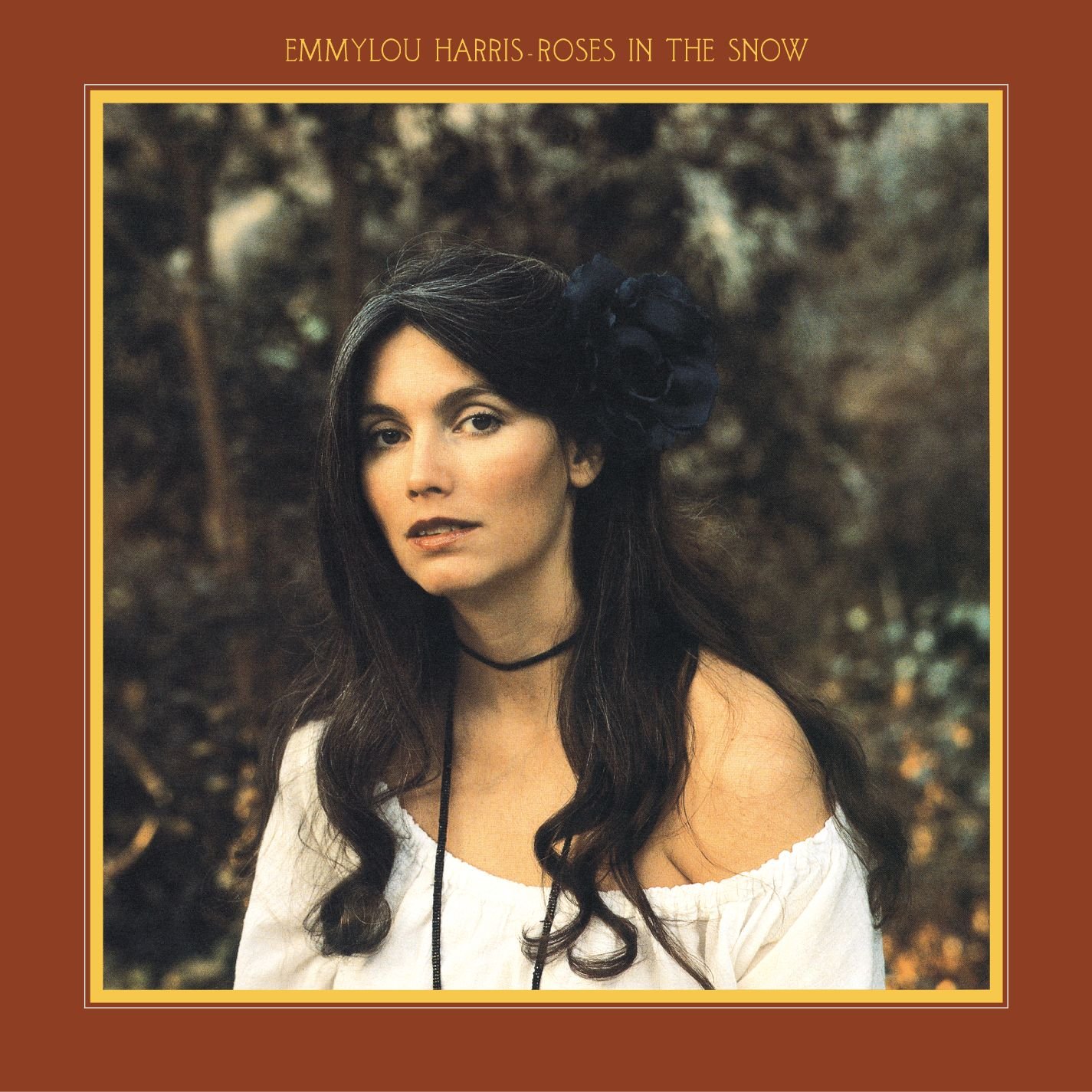
1980, 9/10
Blue Kentucky Girl emphasised traditional country, but Harris’ follow-up Roses in the Snow marks a dive into traditional bluegrass. She made it in response to traditionalist detractors who implied she “wasn’t country enough”, and in the face of a record company boss who predicted it would mark the end of her career. Roses in the Snow went gold faster than any of her previous records, and it’s deserved; it’s lovely, with Harris bringing life to a set that focuses on traditional country material. There’s an all-star supporting cast, including Johnny Cash, Willie Nelson, Linda Ronstadt, Dolly Parton, and The White, but the key contributor is a young Ricky Skaggs on duet vocals, guitar, banjo, and mandolin.
The more authentic the material, the more Roses in the Snow shines. Skaggs and Harris duet beautifully on the traditional spiritual ‘Green Pastures’, while Cash’s stately baritone underpins ‘Jordan’. The cover of the traditional ‘Wayfaring Stranger’ is also gorgeous, and Harris delivers respectful versions of Ralph Stanley’s ‘Darkest Hour is Just Before the Dawn’ and The Carter Family’s ‘Gold Watch and Chain’. Harris’ version of Simon and Garfunkel’s ‘The Boxer’ is the least essential track – lacking the studio candy of the original, like the booming drums.
Harris took an artistic risk with the traditional bluegrass of Roses in the Snow but it’s absolutely gorgeous and one of her best records.
Evangeline
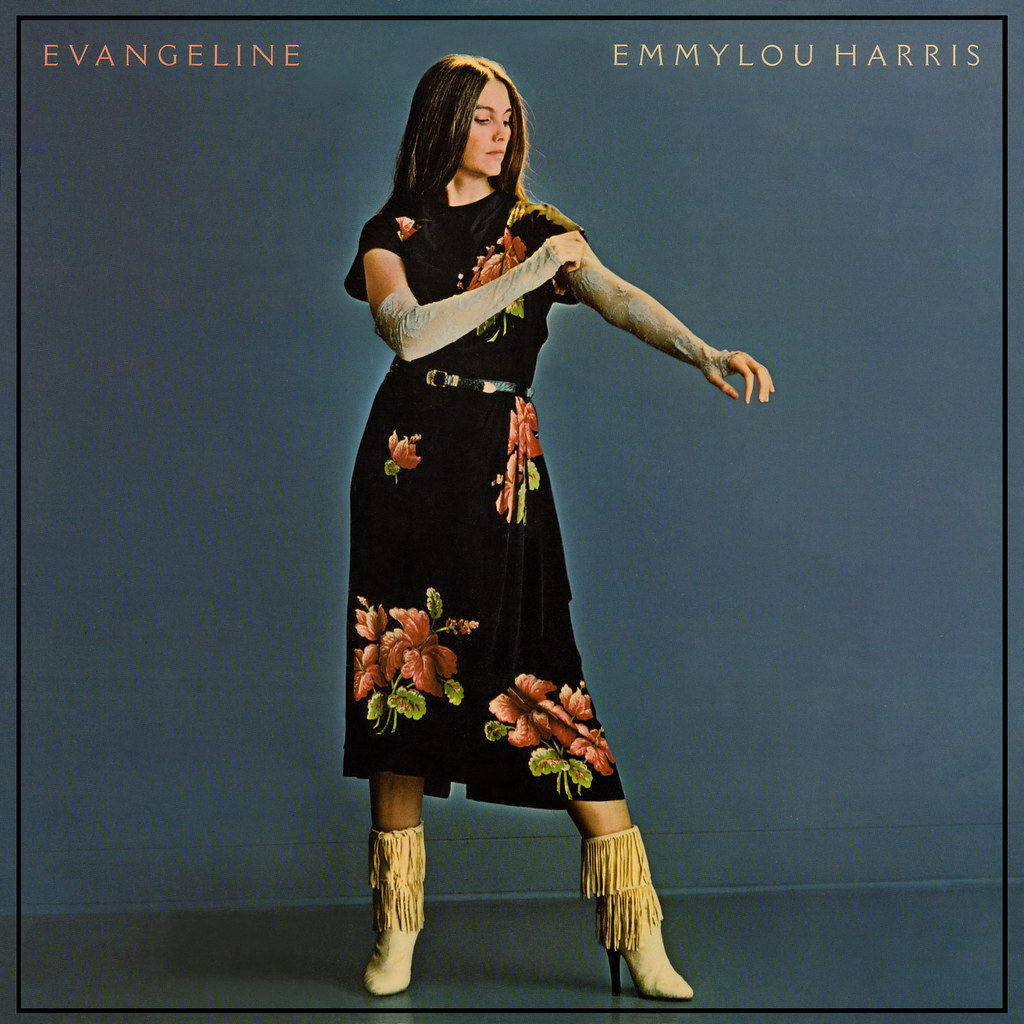
1981, 7.5/10
Evangeline is mostly comprised of outtakes, recorded between 1978 and 1980. It’s never been released on CD (except belatedly as part of a budget collection) so it’s become an overlooked item in Harris’ catalogue. But the scattershot approach doesn’t really hurt Evangeline – it’s unified by Harris’ sweet voice, and it’s entertaining to hear the creepy rock of ‘I Don’t Have To Crawl’ and the lullaby of ‘Mister Sandman’ on the same record.
The main attraction, though, is a solo version of Robbie Robertson’s ‘Evangeline’ – a song that Harris sang on The Band’s The Last Waltz with Rick Danko. ‘Mister Sandman’ is a remnant from a failed attempt to record with Linda Ronstadt and Dolly Parton. The trio would eventually make a full record together in 1987- they can be heard here, although for the single version of ‘Mister Sandman’ Harris had to overdub their vocals with her own. There’s also a spicy version of Gram Parsons’ ‘Hot Burrito #2’, while Waylon Jennings duets on ‘Spanish Johnny’.
Evangeline might be mostly outtakes, and out of print for years, but nonetheless, it’s a typically solid set from Harris.
Cimarron
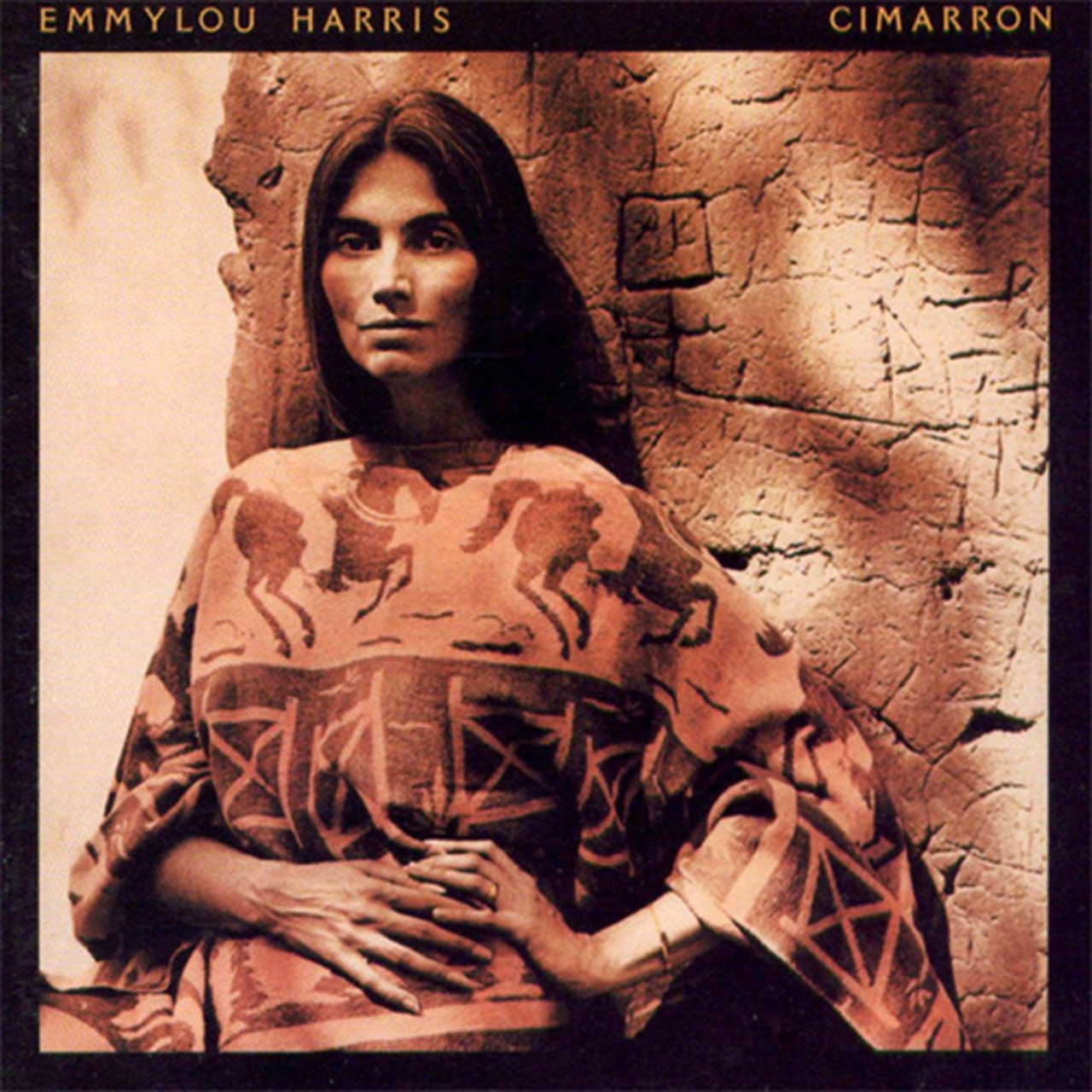
1981, 7/10
Like Evangeline, Cimarron mostly consists of outtakes from previous sessions. Where Evangeline was closer to the rock end of Harris’ oeuvre, with songs from John Fogerty and Robbie Robertson, Cimarron focuses on country material. Don Williams duets on a cover of Townes Van Zandt’s ‘If I Needed You’, while two songs have “Tennessee” in the title and two have “Waltz” (Harris’ cover of Pee Wee King’s ‘Tennessee Waltz’ contains both). Harris indulges in some trolling in the tracklist, following ‘Born To Run’ (not a Bruce Springsteen cover) with ‘The Price You Pay’ (a Bruce Springsteen cover).
The album title is taken from the opening track ‘Rose of Cimarron’, written by Poco’s Rusty Young. ‘If I Needed You’ is one of Townes Van Zandt’s prettiest tunes, and the duet with Don Williams is lovely. ‘Another Lonesome Morning’ and ‘Tennessee Waltz’ are gorgeous, and Paul Kennerley’s ‘Born To Run’ stands out as an upbeat tune on a mellow album.
Of the two outtake records from 1981, I prefer the rock-oriented Evangeline, but most of the songs on Cimarron are too good to stay in the vaults.
Last Date
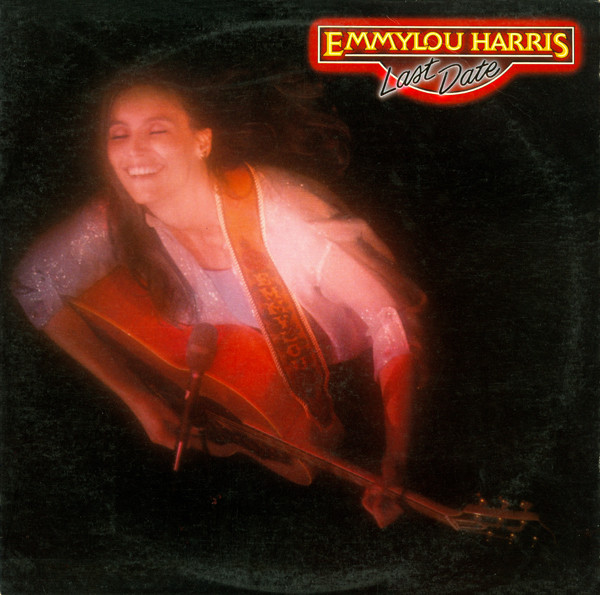
1982, 7/10
I don’t always cover live albums, but Harris’ Last Date is different than most. The setlist is very Emmylou Harris (lots of Gram Parsons, some venerable country songs, a Springsteen cover), but none of these songs had appeared on her studio records. They’re recorded live with the Hot Band, whose membership had changed markedly since the 1970s – drummer John Ware is the only holdover from the original lineup, while Barry Tashian shines on duet vocals. Last Date is a strong record, although it suffers from a lack of variety – it largely sticks to sprightly country tunes.
Last Date is named for the cover of Floyd Cramer’s ‘(Lost His Love) On Our Last Date’; Harris’ dignified reading provided her fifth #1 country hit. The song that deviates most from the album’s template is Bruce Springsteen’s ‘Streets on Fire’ – it’s countrified, but shares the resigned romanticism of the original. There are four Parsons tunes (counting Joyce Allsup’s ‘We’ll Sweep Out The Ashes (in the Morning)’, which Parsons covered on GP) – it’s a little surreal hearing Harris singing lead on ‘Return of the Grievous Angel’.
Last Date is another high-quality effort from Harris; the live setting provides a different angle on her sound.
White Shoes
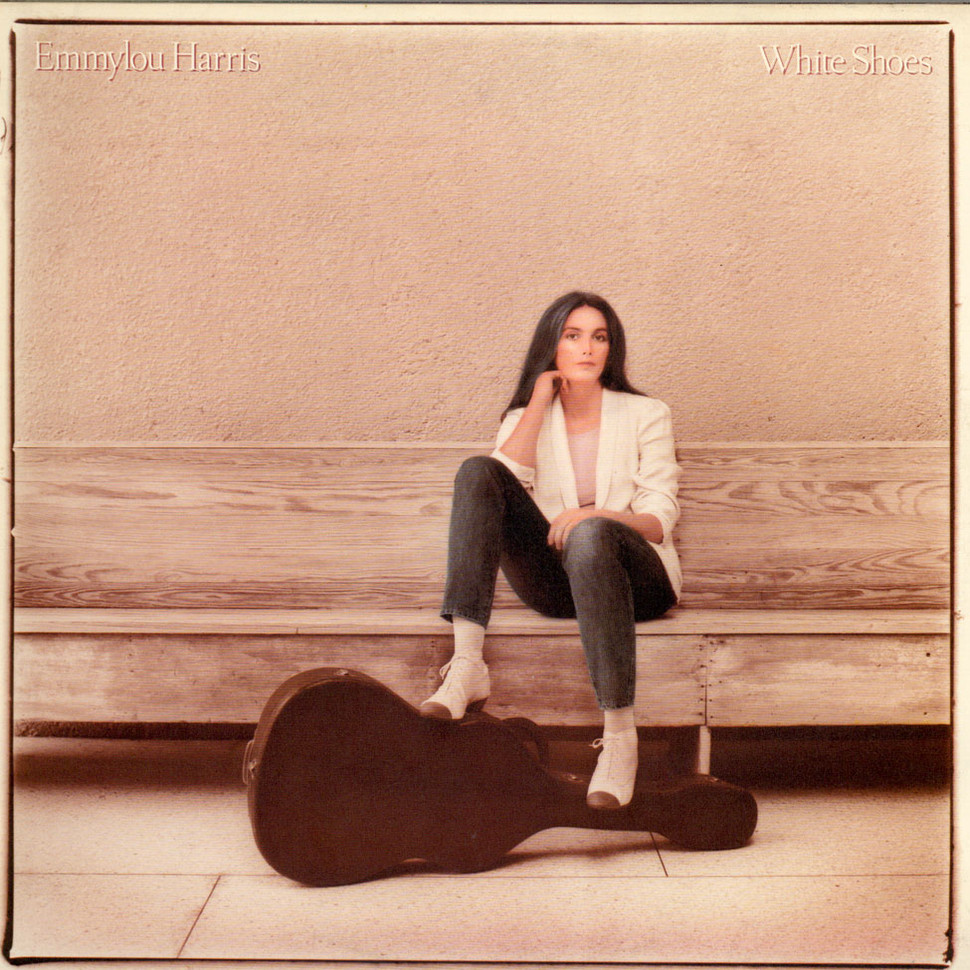
1983, 7/10
White Shoes was Harris’ last album with Brian Ahern producing – he’d been behind the chair ever since 1975’s Pieces of the Sky. Even by Harris’ standards, the material is eclectic – particularly surprising are a straightforward country reading of Donna Summer’s ‘On The Radio’ and a rock-oriented cover of ‘Diamonds Are A Girl’s Best Friend’. There’s a 1980s sheen creeping into the rockier numbers – some heavy reverb on the snare on ‘Baby, Better Stop Turning Them Down’, and as a result White Shoes has dated less gracefully than Harris’ earlier efforts, but it’s still a fun set.
Kudos to Harris for drawing attention to Sandy Denny’s ‘Like An Old Fashioned Waltz’ – it’s an elegant song from an under-appreciated songwriter. As always, there’s dependable country material – Paul Kennerley’s ‘In My Dreams’ and a cover of the blues classic ‘Pledging My Love’. The songs that stretch from Harris’ usual oeuvre the furthest are the most memorable – ‘On The Radio’ and ‘Diamonds Are A Girl’s Best Friend’.
White Shoes is an enjoyable return to the eclecticism of Luxury Liner; it’s fun, but the 1980s sheen isn’t entirely becoming for a country record.
The Ballad of Sally Rose
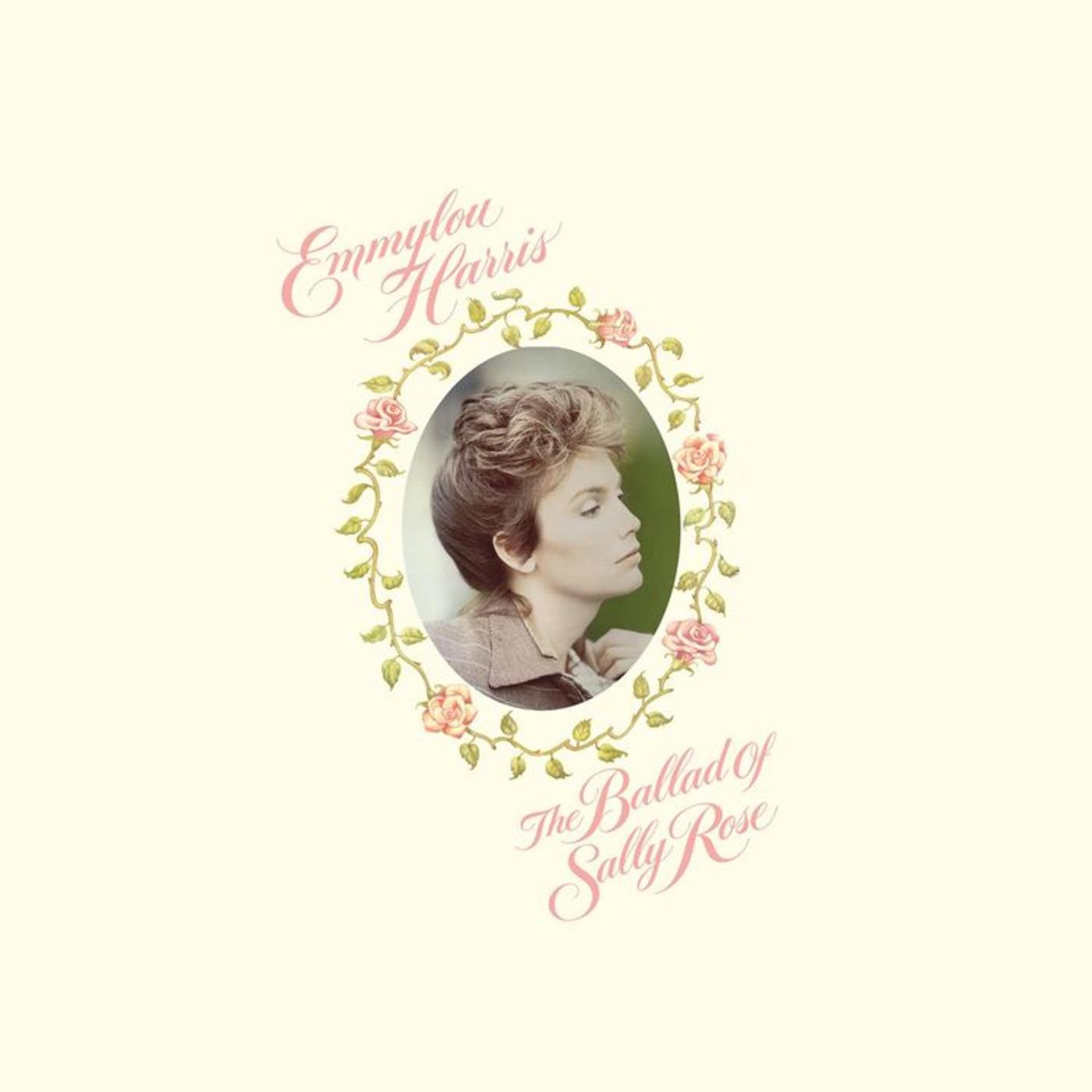
1985, 8.5/10
After White Shoes, Harris split up with Brian Ahern, and moved to Nashville to connect with friends like Rodney Crowell. Inspired by Bruce Springsteen’s Nebraska, Harris decided to write her own “country opera”. She collaborated with her new husband Paul Kennerley, who’d previously released the concept albums White Mansions and The Legend of Jesse James. Together they constructed a song cycle about Sally Rose, a semi-autobiographical account of Harris’ relationship with mentor Gram Parsons. It’s clearly not all true – Harris and Parsons were never romantically involved – but probably cathartic for Harris to write about the mythology around Parsons. The Ballad of Sally Rose sold poorly compared to Harris’ usual standards, but it’s since been recognised as one of her best records.
The centrepiece is ‘Woman Walk The Line’, a statement of independence in the face of philandering. It’s punctuated by dramatic guitar strums, and hits with lines like “Yes I’m a woman and I’m lonely/But that don’t mean I can’t be strong.” The Ballad of Sally Rose shines on low-key, gorgeous material like ‘Diamond In My Crown’ and ‘Sweet Chariot’, while they’re balanced by upbeat material like ‘White Line’ and ‘Rhythm Guitar’.
The Ballad of Sally Rose is a fascinating record – Harris unpacking and embellishing her relationship with Gram Parsons with some great songwriting.
Thirteen, Angel Band, Bluebird, Brand New Dance, At The Ryman
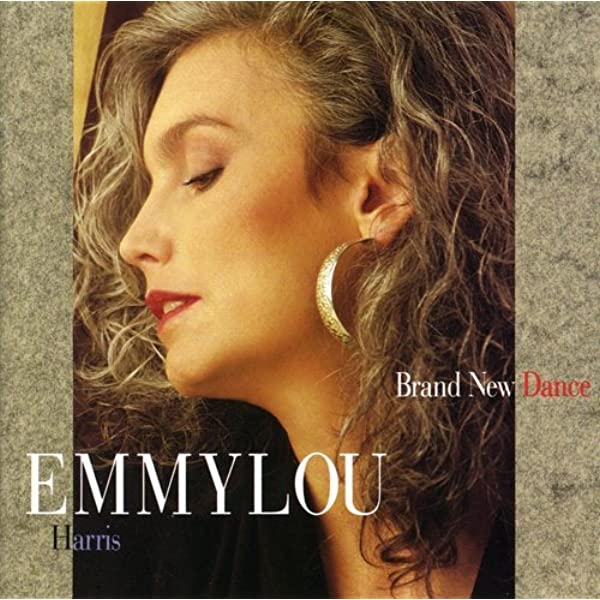
1986-1992
I’m not very familiar with any of these Harris records, released between 1986 and 1992. Most of them aren’t considered among her best, although Harris is consistently classy so I’m sure they’re all fine. The live album At The Ryman is probably the most acclaimed of the era, featuring Harris’ new acoustic band, The Nash Ramblers.
Cowgirl’s Prayer
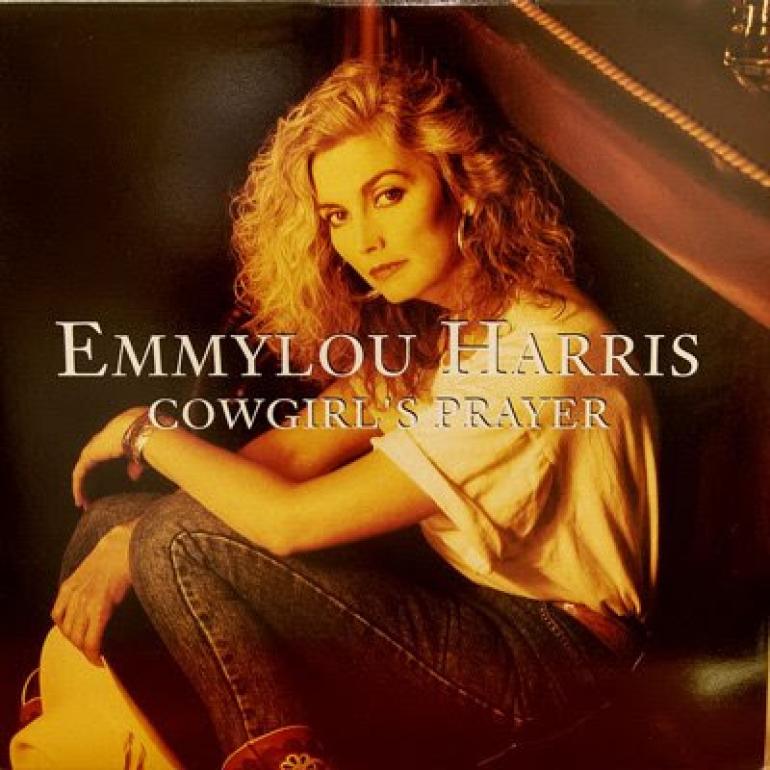
1993, 7/10
Harris’ marriage to Paul Kennerley ended in 1993, and it’s fair to assume that relationship breakdown is a major factor behind the subdued nature of Cowgirl’s Prayer. Harris covers a variety of writers, but largely from the country genre – songs from the pens of veterans like Jesse Winchester and Leonard Cohen are joined by newer faces like Lucinda Williams and Lainie Marsh. Harris is produced by Nashville veterans Allen Reynolds and Richard Bennett, and the arrangements are classy and restrained.
At the centre of Cowgirl’s Prayer is a rare solo writing credit for Harris on ‘Prayer in Open D’. It’s a soul-baring song that opens with the lines “There’s a valley of sorrow in my soul/Where every night I hear the thunder roll.” The cover of Tony Joe White’s ‘High Powered Love’ is an obvious play for a country hit – the record’s other rocker, a cover of Lucinda Williams’ ‘Crescent City’, is much more enjoyable. Harris uses spoken word delivery in ‘Jerusalem Tomorrow’, a song from the pen of David Olney (who famously died mid-concert in early 2020). Also of note is the beautiful Leonard Cohen-penned closer, ‘Ballad of a Runaway Horse’.
Cowgirl’s Prayer is an interesting record – it mixes a commercial Nashville sound with some introspective material. Due to a change in programming policy, Cowgirl’s Prayer wasn’t played on country radio, leading Harris into a radical change of direction on her next project.
Wrecking Ball

1995, 9.5/10
After the commercial failure of Cowgirl’s Prayer, Harris’ record company (to their credit) asked her for the names of producer she’d like to work with. The only name she could think of was Daniel Lanois, who’d worked with Brian Eno and released the acclaimed solo album Acadie in 1989. The selection of country songs that Harris covers on Wrecking Ball isn’t much different than before. Lanois, however, provides an atmospheric backdrop for Harris’ music like he’d previously done for U2 and Peter Gabriel. Wrecking Ball is a significant deviation from anything Harris had recorded previously, but it works wonderfully. Harris’ voice has noticeably changed, but it’s for the better – her vocals are still pretty on songs like ‘Waltz Across Texas Tonight’, but she has a darker, lower register that she uses on songs like ‘Deeper Well’.
Wrecking Ball hits its stride immediately with ‘Where Will I Be?’, a Lanois composition where his chiming, echoing lead guitar is a perfect foil for Harris’ sweet voice. Steve Earle’s ‘Goodbye’ and Dylan’s ‘Every Grain of Sand’ are also beautiful, while David Olney’s ‘Deeper Well’ provides some bluesy grit. ‘May This Be Love’ is one of Harris’ most astonishing covers, changing a Hendrix throwaway into something profound. Harris picked up on Gillian Welch before she released an album, and ‘Orphan Girl’ might be the best song on an album full of classics.
While Harris’ venture into new territory may have seemed unlikely to succeed on paper, Wrecking Ball is a wonderful record that broadens her appeal without damaging her credibility.
Red Dirt Girl
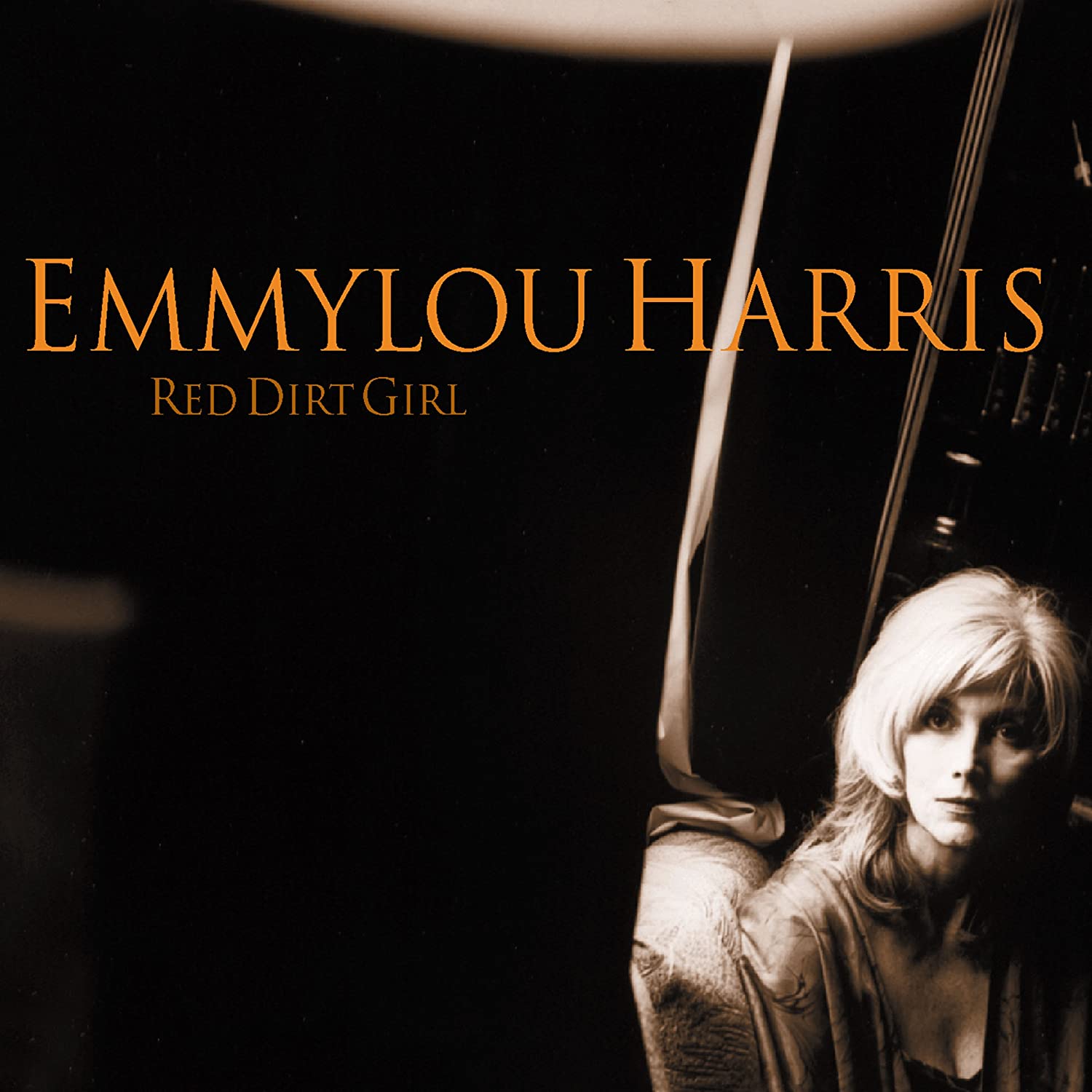
2000, 7.5/10
After the success of Wrecking Ball, fellow country artist Guy Clark challenged Harris to write an entire album of material for the followup. Red Dirt Girl took five years to emerge, but features eleven Harris originals and only one cover; Patty Griffin’s ‘One Big Love’ is a welcome change of pace from Harris’ introspective material. It’s produced by Malcolm Burn, a Lanois associate who gives the record a similar feel to Wrecking Ball, although it’s a little more adult-contemporary and dated – the drum programming on ‘Tragedy’ is so 2000 AD. There’s the occasional co-write from Clark and Rodney Crowell, but it’s a bold effort from Harris to write an entire album – she collaborated with Paul Kennerley on The Ballad of Sally Rose.
Songs such as ‘The Pearl’ and ‘My Baby Needs A Shepherd’ are mature and insightful. The lovely title track showcases a penchant for story-telling, as does the album’s highlight ‘My Antonia’, where Dave Matthews’ gravelly voice is contrasted with Harris. The Elvis invoking relationship eulogy ‘Boy From Tupelo’ is a lovely closer. Red Dirt Girl can be a little sleepy at times, as songs like ‘Bang The Drum Slowly’ and ‘Hour Of Gold’ drag to five minutes.
Red Dirt Girl is overly long at almost an hour but there’s some very strong song-writing from Harris, and it’s a logical progression from her career revitalisation on Wrecking Ball.
Stumble Into Grace
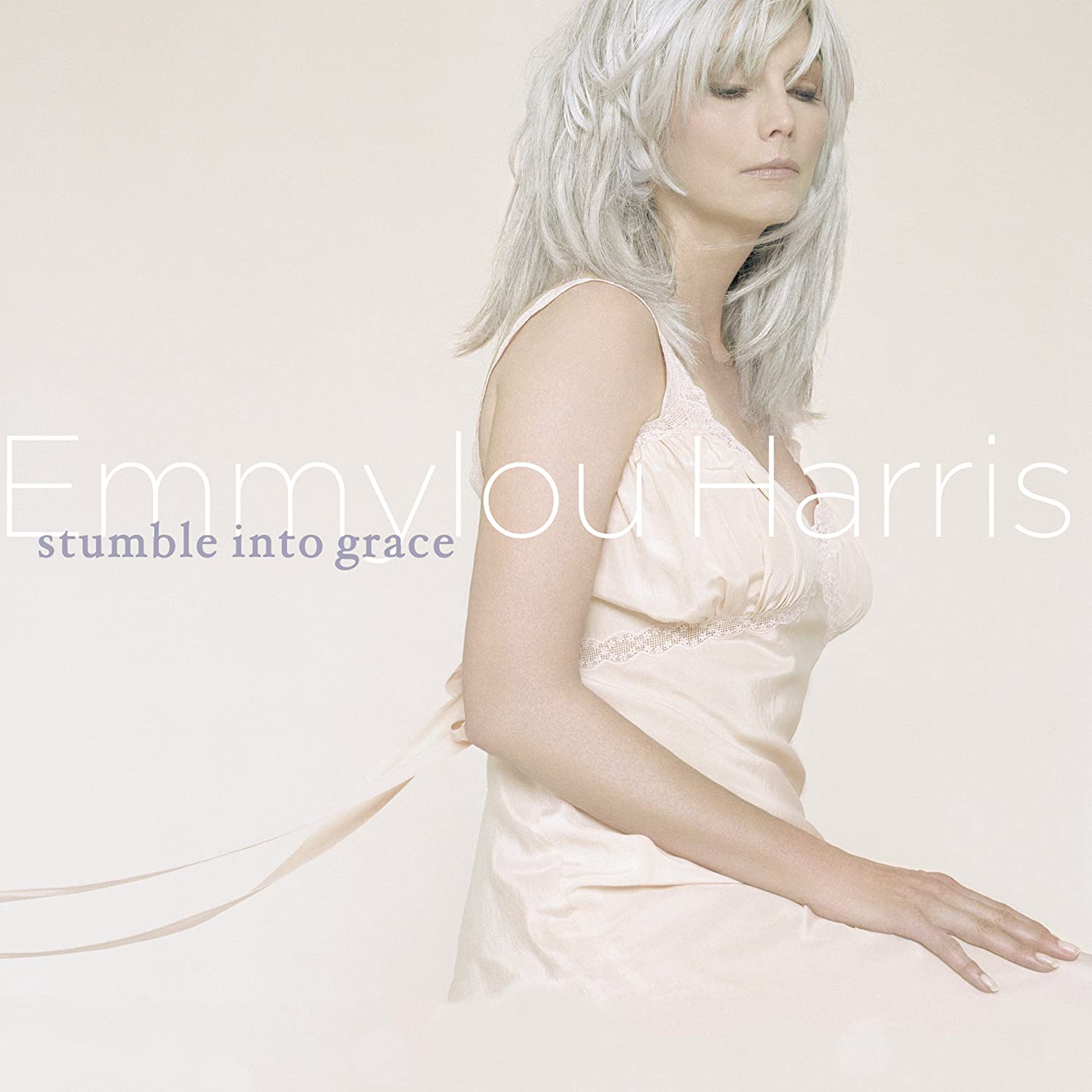
2003, not rated
Same deal as Red Dirt Girl – produced by Malcolm Burn and mostly written by Harris. I liked it at the time, although it drifted closer to adult contemporary than her two previous records. Standout track ‘Strong Hand’ was written about June Carter Cash.
Ten Best Emmylou Harris Songs
Boulder to Birmingham
Green Pastures
Woman Walk The Line
Orphan Girl
Pancho & Lefty
Evangeline
(You Can Never Tell) C’est La Vie
My Antonia
Leaving Louisiana in the Broad Daylight
Prayer in Open D
Back to 1970s Album Reviews….
4 Comments
Leave a Reply
Related Pages
About
Aphoristic Album Reviews is almost entirely written by one person. It features album reviews and blog posts across a growing spectrum of popular music.
Review Pages
Read about the discographies of musical acts from the 1960s to the present day. Browse this site's review archives or enjoy these random selections:
Blog Posts
I add new blog posts to this website every week. Browse the archives or enjoy these random selections:
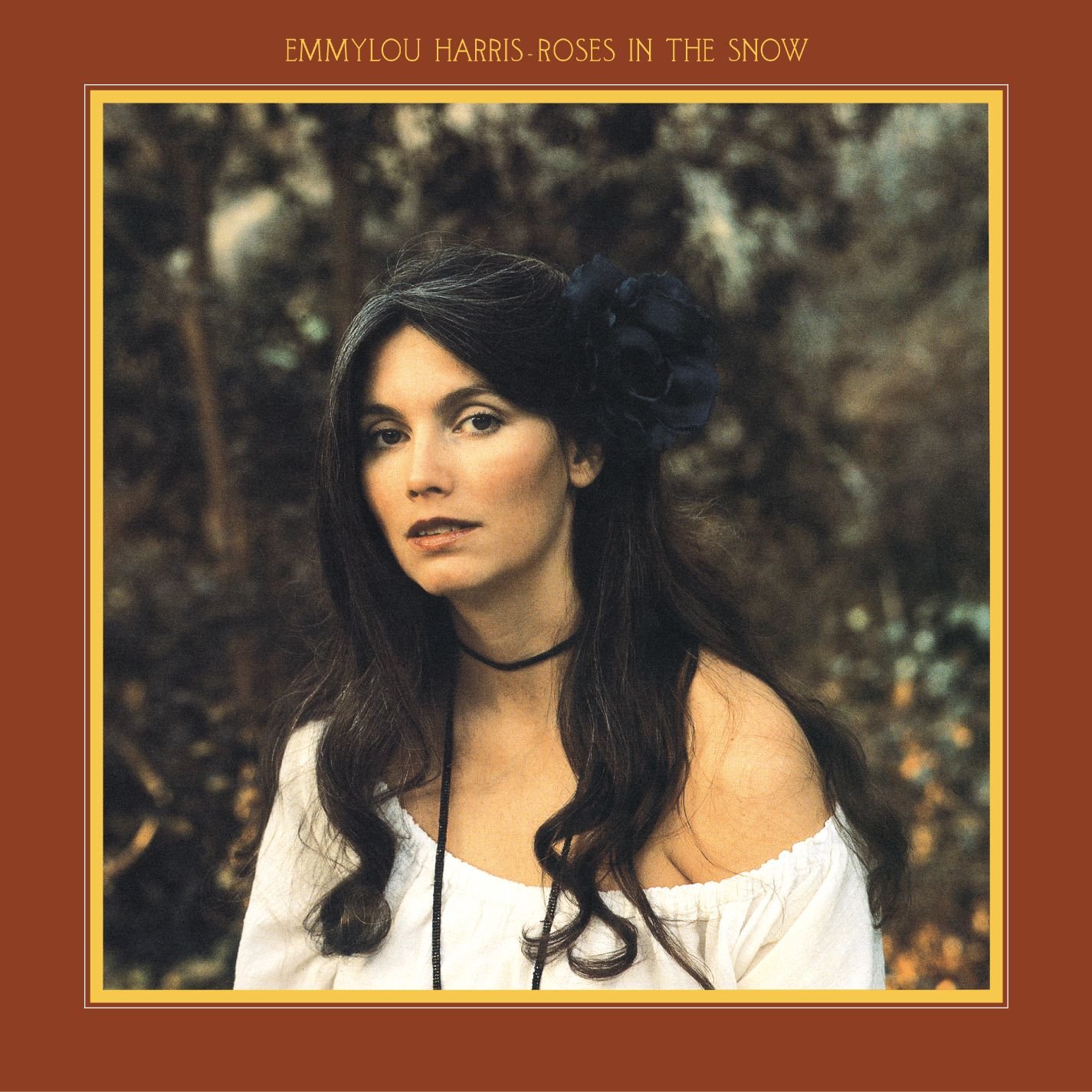
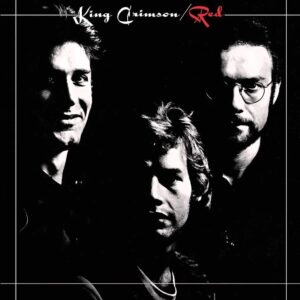

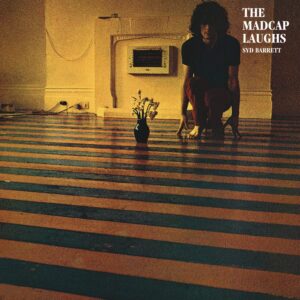
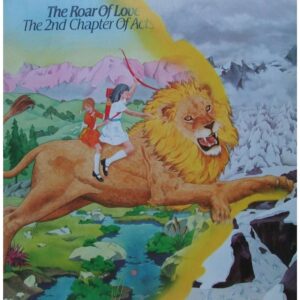
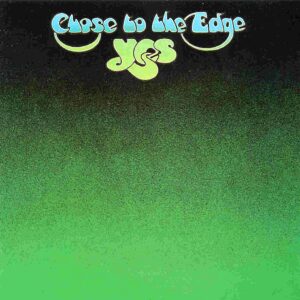

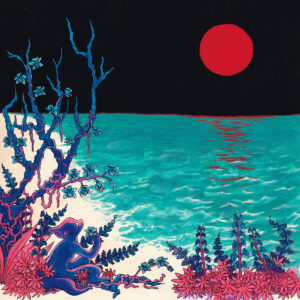
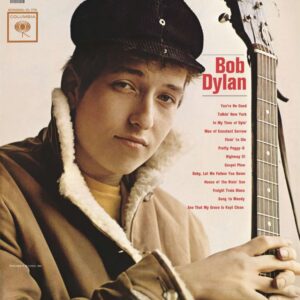
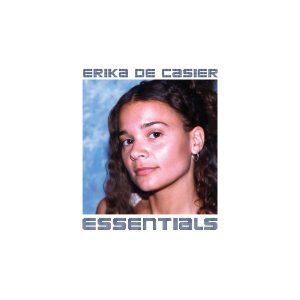
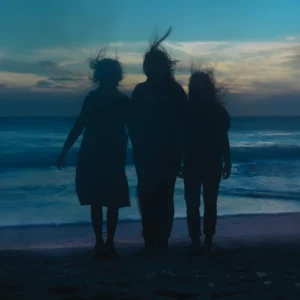

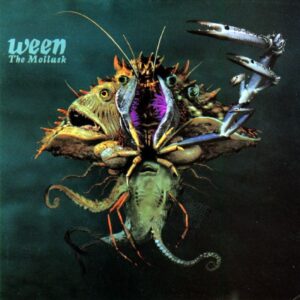
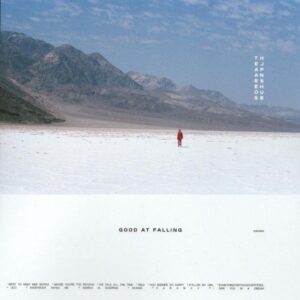
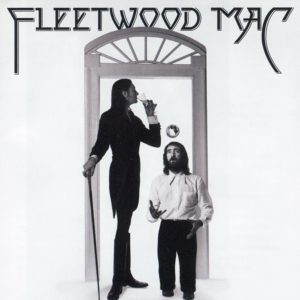
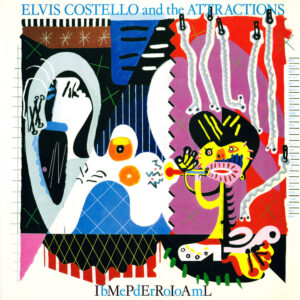
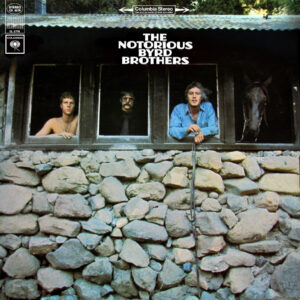
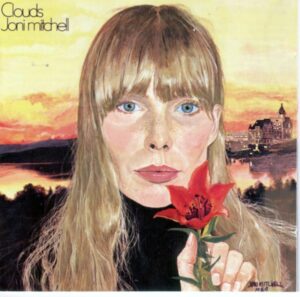
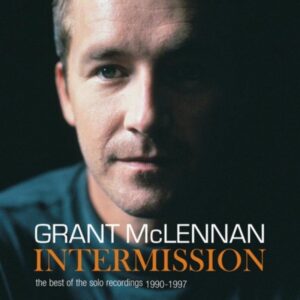
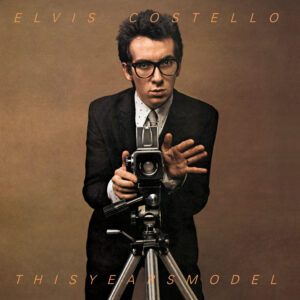
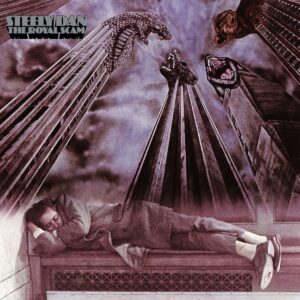




My favorite is still last date. Bruce Springsteen makes me want to cry when he sings racing in the street. Emmy Lou makes me want to curl up in a fetal position and never come out.
Yup, she’s amazing. Stayed good for a long time too.
Spyboy was an amazing album as well.
Yeah, given Wrecking Ball is my favourite I should probably check out that one too.